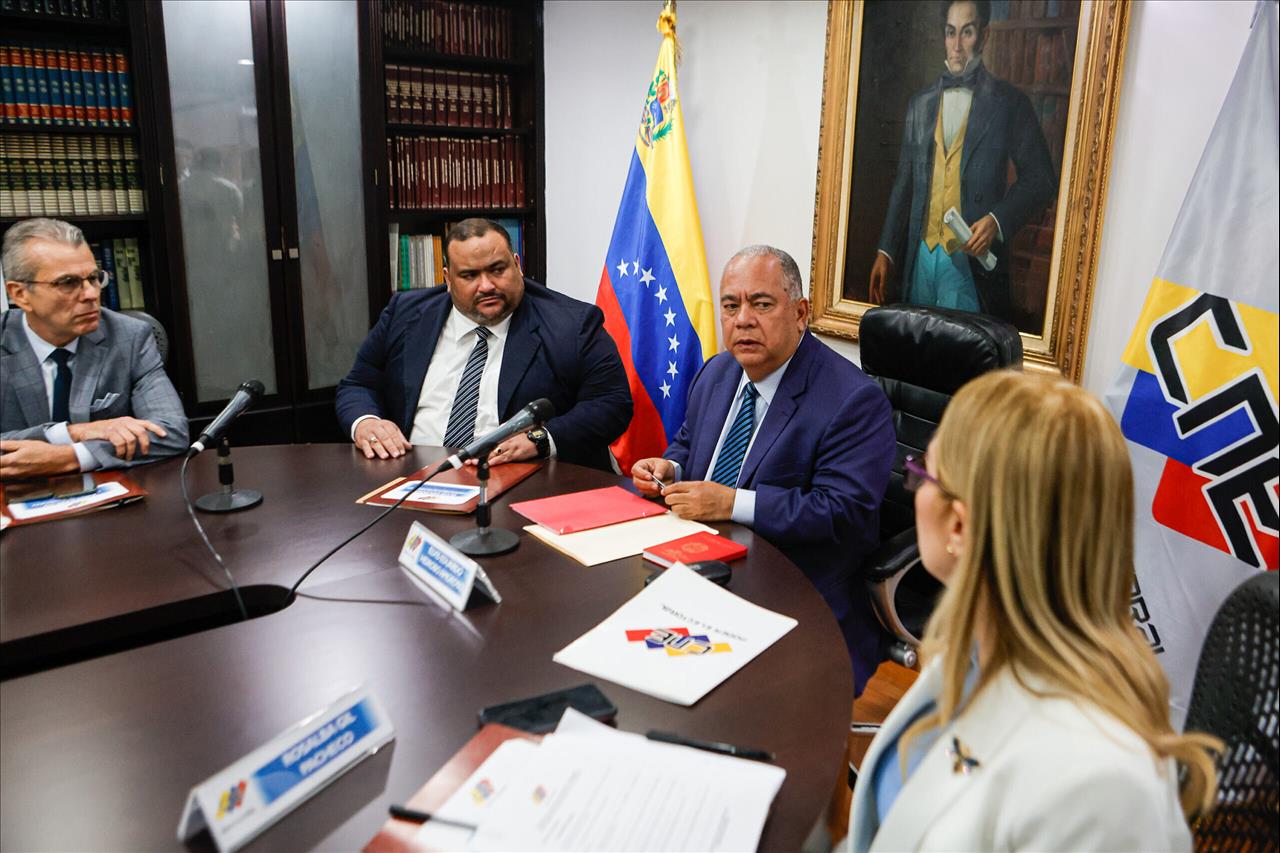
Venezuela's National Assembly Designates New Electoral Authorities
The selection of the five new members of the country's electoral authority follows an arduprocess by the Venezuelan Congress to draw selections from a long-list of 104 candidates, who were previously vetted by a commission made up of lawmakers and representatives of the country's civil society organizations.
National Assembly President Jorge Rodríguez celebrated the process behind the selection of the new CNE board, calling it a“product of the broadest consensus” in the country's recent history, highlighting the participation and buy-in from the country's opposition parties.
The outgoing board was selected in May 2021 and included two figures drawn from the ranks of Venezuela's most important anti-government coalition. The new board will likewise include representation from the country's opposition.
The new CNE board includes: former comptroller Elvis Eduardo Hidrobo Amoroso, who will preside over the electoral authority as its president; Carlos Enrique Quintero Cuevas, who will serve as vice-president; former National Assembly secretary Rosalba Gil Pacheco; as well as Juan Carlos Delpino Boscán and Aimé ClarNogal Méndez, two figures viewed as aligned with the opposition. A group of substitute board members, who would immediately fill any vacancies, was also announced.
The appointment of Amoroso sparked criticism from commentators who pointed to the Comptroller's Office inaction in the face of a corruption scandal in the country's oil industry that was unveiled in March.
The designation of Venezuela's electoral authority comes as the country prepares for presidential elections that are constitutionally scheduled for 2024. The makeup of the board has been a point of contention between the government and the opposition, as well as the latter's allies in Washington, which has frequently labeled Venezuela's elections as fraudulent to justify regime change efforts.
Last week, Bloomberg reported that the Biden administration was in talks with Venezuela to explore temporary sanctions relief in exchange for a number of unspecified concessions regarding the upcoming elections.
“Should Venezuela take concrete actions toward restoring democracy, leading to free and fair elections, we are prepared to provide corresponding sanctions relief,” Adrienne Watson, a spokeswoman for the White House's National Security Council, told Bloomberg in a written response.
Talks between the Venezuelan and United States governments reportedly involved senior officials from both countries, including Congress head Jorge Rodríguez, who is the lead negotiator in talks between the government and the country's opposition as well.
Those negotiations, largely focused on securing an agreement concerning conditions of the upcoming vote and a commitment from both parties to respect the outcome, broke down after they failed to produce any concrete results, including sanctions relief, the Venezuelan government's principal demand. A deal , lauded by both sides, that would have seen billions of frozen Venezuelan funds released and invested in urgent infrastructure projects and other social needs, also failed to materialize despite agreement from both parties.
It was not clear if the designation of the new CNE board was among the points discussed or if it would impact any potential change to Washington's sanctions policy.
The direct talks between Caracas and Washington represents a shift in strategy from the White House. Officials had previously stressed that they were seeking to avoid directly involving themselves in negotiations between the government and the opposition.
The opposition is currently in the midst of a primary contest to select its candidate for the 2024 race. After years of pursuing extra-constitutional regime change methods and electoral boycotts, the primary will likewise mark the return of Venezuela's hardline opposition to electoral politics.
The process will be conducted by the self-styled National Primary Commission (CNP) without the assistance of the CNE following the June resignation of the electoral authority's board members. The CNP did not state if they now intend to collaborate with the new CNE.
Venezuela last held a nationwide vote in November 2021, where voters elected governors, mayors, regional legislators and local councilors. The United Socialist Party of Venezuela nearly swept all of the governor's posts up for grabs, winning 83% of the governorships amid a 42.3% turnout.
That contest counted on a 136-member European Union's (EU) observation mission. The mission marked the first time that the EU sent observers to the country since 2005. The EU mission's report concluded that“the Venezuelan electoral legal framework complies with most basic international electoral standards” but nonetheless claimed that“structural deficiencies” remained. The Brussels delegation did little to stem Washington's condemnation of the 2021 vote nor to stem a barrage of negative press coverage that labeled the process as“flawed.”
Despite a thawing of relations between Venezuela and some EU member-states, the bloc report also did not bring about sanctions relief. President Nicolás Maduro has been reluctant to extend a new invitation for foreign observers. The country will hold constitutionally mandated presidential elections in 2024, though a date has not yet been announced.
Edited by Ricardo Vaz in Caracas.

Legal Disclaimer:
MENAFN provides the information “as is” without warranty of any kind. We do not accept any responsibility or liability for the accuracy, content, images, videos, licenses, completeness, legality, or reliability of the information contained in this article. If you have any complaints or copyright issues related to this article, kindly contact the provider above.






















Comments
No comment